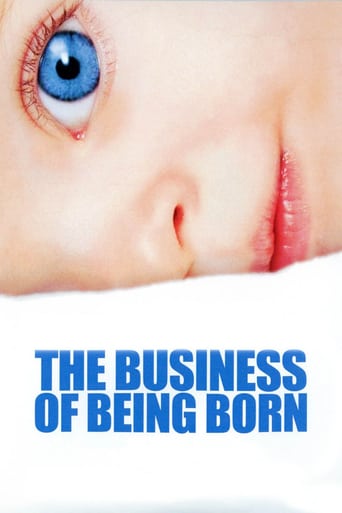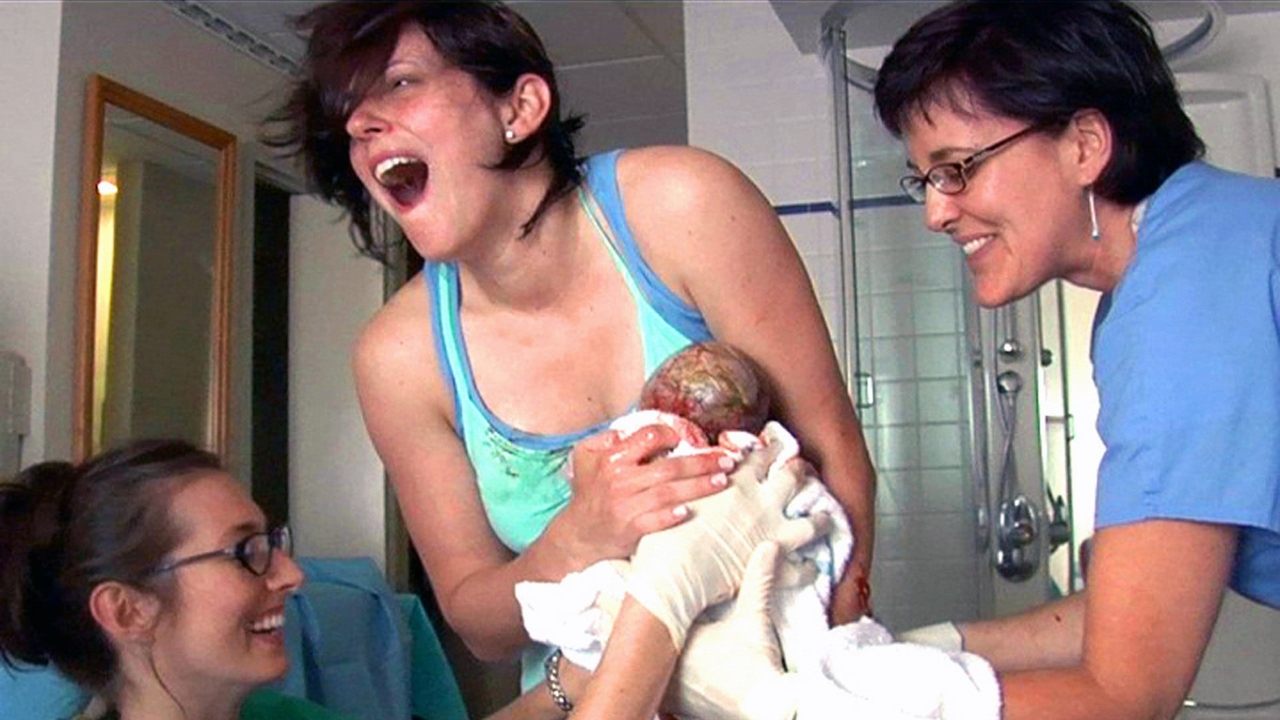choopacablangp
Pros: This movie showed many of the little-known or acknowledged shortcomings of the medical industry's approach to childbirth. It gives a "one-sided" view because it's goal is to show the side of this process that is constantly swept under the rug. This movie helps remove some of the blinders Americans have on about the natural process of childbirth and shakes the pedestal we've placed the medical system on. It shows how motivations have drifted away from what's best for mothers and babies and now prioritize the convenience of medical staff and the premature use of interventions which increase risks and need for more interventions.Cons: One mother being followed through the process caves in and goes the unnatural rout after only a brief time of labor. They could have given more attention to home birth where stress and pressure are greatly reduced.
S K
This movie gives very one-sided view of everything. Actually watching it persuaded me even more - I'll give birth only at a hospital with an epidural. No other way. They wanted to show that natural birth is "good and peaceful", and at the same time were showing women screaming from pain and telling in the interviews that it was so painful, that they thought to give up and go to the hospital. So, why on earth would you go through it? Just to prove to yourself that you can do that? To "punish" the U.S. medical system? I didn't see the deep reason behind it in the movie.Now about all the talks how bad medical system in the U.S. is for women and babies, and that in all other countries midwives are actively participating in birth, but not in the U.S. I would say to those ladies - go to former USSR countries and give birth there - with a midwife at a regular birth center, and see how "peaceful" it is, before saying that delivering in U.S. hospitals is hell. My mom went through 5 natural deliveries, she didn't have any other alternatives. When I told her about an epidural, and that there still are women who would prefer natural delivery, she was shocked, that having that option, women still would opt to go through that pain and hell. Of course, it's a choice of every woman to deliver the way she wants, but this movie was not trying to give an option, it was trying to persuade that natural delivery is the only way to go.
Roland E. Zwick
According to statistics, the infant mortality rate in the United States exceeds that of virtually every other nation in the industrialized world. The U.S. is also the only place in which far more women give birth in hospitals than at home under the care of a professional midwife. The documentary "The Business of Being Born" sees a connection between those two facts. Executive producer Ricki Lake first conceived of this film after she delivered her first baby in the hospital and then felt cheated of the potentially beautiful and meaningful experience a home birth might have provided. With the aid of director Abby Epstein, Lake has gathered together a group of women, couples, midwives and physicians who, through their own personal experiences and/or studies on the matter, help to provide evidence for her case that, for the large majority of women, delivering at home is preferable, on both a practical and spiritual level, to delivering in a hospital. Lake has even allowed herself to be filmed in the process of giving birth to her second child at home.This is an eye-opening and informative movie that admittedly provides really only one side to the issue. But it makes a pretty convincing case for that side and certainly gets the audience thinking. First, it offers a number of startling statistics, the prime one being that roughly one third of all babies born in America are now delivered through Caesarian Section, a procedure that is classified as "major surgery" but which is often treated with casual indifference by both physicians and patients (the shots of a Caesarian are far more "gruesome" than any of the shots of actual childbirth we are shown). The movie also recounts a brief but somewhat disturbing history of obstetrics practices in the United States during the past century when many women were put into "twilight sleep" and missed the birthing experience entirely. The movie also points out that, in a hospital setting, a "cascade of interventions" often prevents women from having the ultimate say in how they choose to deliver their babies. But the majority of the case is made through personal anecdotes from mothers and midwives concerning their own birthing experiences, as well as by the recording of many of those actual home births live on camera. Interestingly, after all the successful home births, the movie ends on one in which the child arrives prematurely and is in a breach position and thus must enter the world in a hospital room after all. It's an indication of the honesty and courage of the filmmakers that they didn't feel called upon to edit that sequence out of the movie.Yet, for the most part, the film takes the multi-billion dollar medical industry to task for being too quick to use drugs and a scalpel in the birthing experience. The movie also harshly criticizes the insurance industry for failing to recognize the much greater cost efficiency of home-birthing and hence refusing to cover it in their policies, thereby forcing many midwives to simply close up shop. In many ways, "The Business of Being Born" is fighting something of an uphill battle in that it appears counterintuitive - especially to a generation raised on the belief that the medical industry can do anything - to suggest that a birthing process with a physician and modern medical equipment on hand could actually be less safe than a birthing process without them (though the movie is quick to point out that the midwives are all state-certified and trained to deal with any unforeseen complications that might arise). Still, for women facing this decision - as well as for a society that for over a century now has frowned upon even the thought of natural childbirth - "The Business of Being Born" may serve as a paradigm-shifting event.
ericpowers
Everyone in America should watch this film, especially fathers and mothers-to-be.As a father of two babies delivered by Caesarean section, my real life experience reflects what this film presents. With a first pregnancy, men like me might trust a maternity and birthing health care system that obviously is accepted by everyone we know. As an engineer and technologist, I am attracted to statistics and procedures, I am attracted to managed systems and to logical decision-making. And I understand that giving birth involves a lot of money, and that doctors, hospitals and health care companies have a burden in how to run a successful enterprise.But the American birthing system is missing something very important... our humanity, our sensitivity, our vulnerability. Ricki Lake and Abby Epstein reveal the vulnerability of father, mother and child during pregnancy, how easily we allow a managed system to make decisions in the name of our well-being. When faced with an overwhelming majority of our family and friends who know only one way to give birth, in a hospital, there is little room for anything else.This film challenges what we assume works, and informs us that there are alternatives accepted everywhere else in the world but in the United States. I pray that other mothers and fathers-to-be, for the sake of their children's' psychological and emotional health, will step up to the plate, become informed consumers about what is happening, and consider a traditional birth, at home.Your first step is to see this film.


 AD
AD

